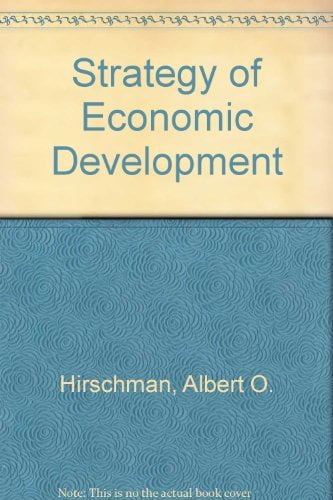
“The Strategy of Economic Development” by Albert O. Hirschman is a groundbreaking work in the field of development economics. Hirschman challenges the concept of balanced growth, which advocates for large-scale simultaneous investment across various sectors. He argues that such strategies are often unrealistic for underdeveloped countries. Instead, he proposes a theory of unbalanced growth, where imbalances created by growth can help identify areas for policy intervention.
He introduces the concepts of backward and forward linkages, representing the demand created by a new industry for intermediate goods and the effects on industries using the present industry’s goods as inputs. The book emphasizes the interdependence among different sectors of an economy. Despite its focus on economic development, it also acknowledges the significant role of agriculture-industry interdependence.
